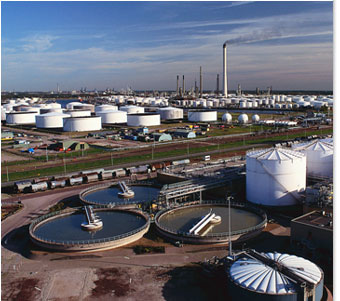|
This course covers the updates in wording and content which the Technical Standards and Safety Authority has made to Ontario's Liquid Fuels Handling Code 2007. The course covers all 9 sections of the new 2017 Code, plus a short Introduction chapter and a summary of the Appendices. All Petroleum Equipment Mechanics and Site Operators must complete an update training program. There is a short test at the end of each chapter.
The Petroleum Mechanic Helper Training Course is an entry level course. Certification as a PMH is a prerequisite for certification as a PM.1, PM.2, PM.3 or PM.4. A person who holds a PMH certificate may, without supervision, replace fuel nozzles, spouts, hoses, breakaways, filters and belts on pumps and dispensers of petroleum products. The Petroleum Mechanic Helper Training Course is the theoretical portion of your training. At the completion of the course your practical experience and skills as a PMH must be signed-off by a currently licensed PM.1, PM.2, PM.3 or PM.4. There is a short test at the end of each chapter and a final exam administered by TSSA after completion of the course.
There is a legal requirement under TSSA's Liquid Fuels Handling Code for every station operator at a service station, bulk plant, cardlock/keylock, or marina which stores and dispenses fuel for retail sale, to be trained in the use of all equipment and trained to take action in the event of a spill or leak of product, or any emergency condition. The Site Operator Training Course fulfills this requirement, and is the theoretical training leading to your Certification by TSSA as a Site Operator. There is a short test at the end of each chapter.
This course does not include minor maintenance training such as changing fuel hoses or nozzles. For this training please see the Petroleum Mechanic Helper course.
There is a legal requirement under TSSA's Liquid Fuels Handling Code for every person employed by a Municipality as an attendant at its fuel handling/dispensing facility or as a driver of a highway tank or mobile refuelling tank, to be trained in the use of all equipment and trained to take action in the event of a spill or leak of product, or any emergency condition. The Site Operator Training Course fulfills this requirement, and is the theoretical training leading to your Certification by TSSA as a Site Operator. There is a short test at the end of each chapter.
This course does not include minor maintenance training such as changing fuel hoses or nozzles. For this training please see the Petroleum Mechanic Helper course.
This course is intended for farmers, contractors, foresters, miners, and other persons who operate a private fuel dispensing outlet.
There is a legal requirement under TSSA's Liquid Fuels Handling Code for every person handling/dispensing fuel at a private fuel outlet or as a driver of a highway tank or mobile refuelling tank, to be trained in the use of all equipment and trained to take action in the event of a spill or leak of product, or any emergency condition. The Site Operator Training Course for Private Fuel Outlets fulfills this requirement, and is the theoretical training leading to your Certification by TSSA as a Site Operator. There is a short test at the end of each chapter.
This course does not include minor maintenance training such as changing fuel hoses or nozzles. For this training please see the Petroleum Mechanic Helper course.
This course fulfills the theoretical portion of the requirement under TSSA's Liquid Fuels Handling Code for every station attendant at a service station, bulk plant, cardlock/keylock, marina, private fuel outlet, or farm which stores and dispenses fuel for its equipment, to be trained in the use of all equipment and trained to take action in the event of a spill or leak of product, or any emergency condition.
It is the responsibility of your employer to guide you through the practical application of your new skills, to complete your training. There is a short test at the end of each chapter.
There is a legal requirement under TSSA's Liquid Fuels Handling Code for every person employed by a Municipality as an attendant at its fuel handling/dispensing facility or as a driver of a highway tank or mobile refuelling tank, to be trained in the use of all equipment and trained to take action in the event of a spill or leak of product, or any emergency condition.
The Municipal Attendant Training Course fulfills the theoretical part of this requirement. It is the responsibility of your employer to guide you through the practical application of your new skills, to complete your training. There is a short test at the end of each chapter.
|






